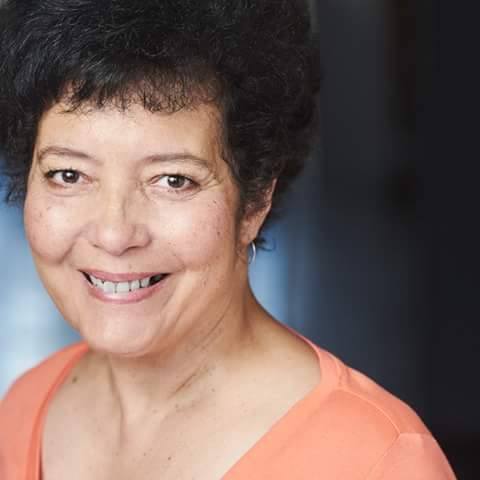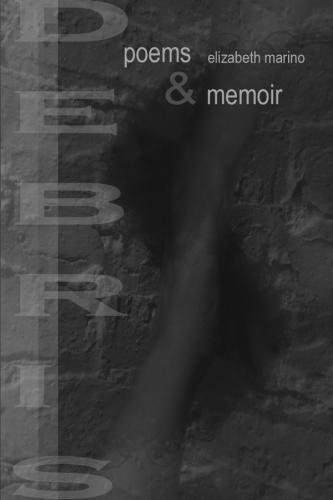Elizabeth Marino may have been born
into a Puerto Rican family in Chicago but the circumstances
of her unique childhood and upbringing made her more creature
of her city than an ethnic writer. Chicago was and is a town where neighborhoods
can be little realms of their own and where travel between
them often seems like it should require passports and stamped visas. A keen memoirist she recalls that world
and as an adult dared to adventure even wider while honoring
her roots.
Marino was born to a Puerto Rican couple
in Chicago’s old Hyde Park barrio and was raised in an Italian/German
American family in the southwest Chicago suburbs, famed for musicians
and gangsters. She holds a Master of Art from the University
of Illinois at Chicago’s Writers Program and a BA from Barat
College in addition to studying English literature and history
at Oxford University. She works as an itinerant adjunct instructor
of English at various Chicago area colleges preferring to stay in the city than
pursue possibly more secure employment elsewhere. She is also an actor/director,
working under her stage—and birth name, Micaela Mastierra.
She published her first poem at the age of
fifteen in the Illinois English Bulletin.
Marino’s poetry has appeared in the anthologies Between
the Heart and the Land/Entre el corezon y la tierra: Latina Poets in the
Midwest published by MARCH/Abrazo Press in 2001, Breaking
Mirrors/Raw Images by 4:30 Poets and College Poetry Review,
and Dark Waters Speaking from La Onda Negra Press
forthcoming). Non-verse and Non-fiction anthology collections include
Building Socialism. Magazine
publications include Moon Journal, After Hours,
Strong Coffee, Nit & Wit, Envisage in the
United Kingdom, and the NAB Gallery Pamphlet Series she also
has appeared on the spoken word CD Elements of Life, Love &
Action with the improve troupe She Laughs. She has published creative
non-fiction, interviews, and articles in The Chicago
Journal and S.H.E.
Her collections include the chapbooks
Debris: Poems and Memoir issued by The Puddin’head Press in
2011 and Ceremonies from dancing girl press in 2016. Her full-length collection Asylum
was published by Vagabond in 2020.
Where Are You From?
I am a poet from
Chicago.
If music can be
carried place to place
and one
constantly moves, it’s hard
to hold what is
needed. Objects drop
from my hands. I
am from the Americas.
You say you have
people here?
Home to home,
each time something is
lost and almost
replaced. A drumbeat continues.
Things gathered
up and held to the bosom
slip through
fingers as you set down
objects.
Everything does fall away
in spite of
holding tight and a long reach.
Music can be
carried place to place
a melody holding
a footfall, a half-
remembered lyric
re-asserts itself
differently each
time. Learn to mix
adobo at home. A
drumbeat continues.
You say you have
people here?
Music can be
carried place to place
Yellow shock of
forsythia bush
irrupts in front
of the red brick two-flat.
A cobblestone
stamped Illinois Brick
under your feet.
I am from the Americas.
Music can be
carried place to place
a last full
blossom on the peony bush
the blink of
spring, the shock
of stillness on
the edge of Eternity
that carousel,
the turning called a revolution
of the lost
musical cake server.
—Elizabeth
Marino
My Father’s Last
Harley
A yellow photo
curls in my hand:
my dad,
leaning against
his ’47 Harley
muscular arms
across white T-shirt
brass Golden
Gloves belt buckle
catches the sun
crossed ankles
and sharp grey pants –
no trace of
Interstate mud at 17
or Army drab—trousers
nearly fit for
a married man.
I’d remembered
him as always looking for his red truck.
His shadow, I’d
walk endless used car lots with him
and witness his
haggling with salesmen. Always, the
perfect red
pickup would be just on the next lot,
further north or
south on Western Avenue.
“Don’t you never
volunteer for nothin’,” he’d say
Ex Cathedra,
rising from in front of the TV
and shuffling off
toward the bedroom; and I, at 16, would walk
all 30 miles of
the Hunger Hike. After:
“That’s one tough
kid I’ve got.”
He didn’t say
much
when I left the
South Side
for the North
Shore—but that winter
when he saw Tevye
wave
his eldest
daughter off to Siberian exile,
Mom said he cried
in his popcorn.
—Elizabeth
Marino
East of Ashland
There, just east
of Ashland
with its
potholes, busted Budweiser bottles,
rusted stop
signs, and Augie’s two-pump gas station,
I lead the
caravan of bicycles
down towards the
docks of the Calumet-
Saginaw Canal. We
stopped, and mapped out
other journeys
for ourselves.
We named them
angels—those bargemen
who waved and
kept going.
We each kept one
eye cocked,
meaning to leave
Blue Island far behind.
We lived further
west than Ashland,
among the south
bank of the Canal—
where our teacher
said
you could still
find Indian arrowheads—
but east of Gypsy
Town and the trailer park
lit up like a
dime store Bethlehem by Clark Refinery.
Cheryl headed out
first, and went south –
Southern Illinois
University—and I trailed her overland
to visit, no
seats on an overbooked “City of New Orleans.”
Her college
friends gathered, showed us
the rock
formations of Granite City National Park
the white and
green river town of Cape Girardeau.
Both of us really
weren’t surprised by the sites;
we’d always known
they’d be there
when we’d dreamed
on the banks of the Cal-Sag Canal
down there, east
of Ashland.
—Elizabeth
Marino




No comments:
Post a Comment